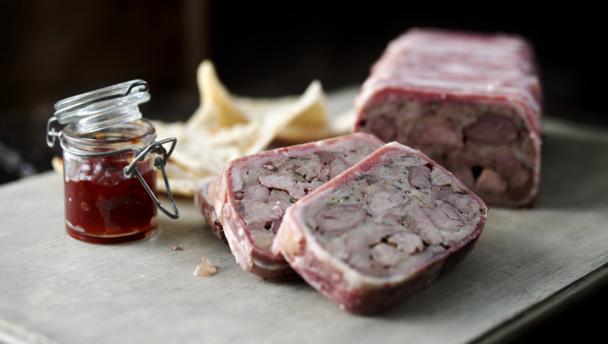

By Hugh Fearnley-Whittingstall
The term 'game' applies to wild animals and birds that are hunted and eaten. It also includes birds and animals once caught in the wild that are now raised domestically, such as quail, rabbit and deer (the latter two can be farmed or wild; quails are no longer allowed to be shot in the wild, so are always farmed).
Wild game's generally more flavoursome than farmed meat, and may be a little tougher, depending on the age of the animal. To counteract the toughness, it's 'hung' after shooting to help tenderise the meat and encourage the development of 'gamey' flavours. The longer meat is hung, the more pronounced the flavour will become, but hanging periods usually range from two days (for rabbit) to up to 12 days (for venison).
In earlier times, birds would be hung by their heads until the body fell off, at which point they would be ready for cooking. This method is probably a little too strong for today's palate but hanging for a short time is worthwhile: if game isn't allowed to develop its unique flavour, you may as well buy and cook farmed meat.
Game falls into two categories. The first is feathered game or game birds, including grouse, pheasant, partridge, quail, snipe, wild duck, woodcock and wood pigeon. The second is furred game, including hare, rabbit, venison and 'wild' boar.
 Game pie
Game pie
 Raised game pie
Raised game pie
 Game terrine
Game terrine
You can buy oven-ready game direct from game dealers, butchers, farm shops, online suppliers and supermarkets (game from the latter will almost always be farmed).
When buying oven-ready game, look for moist, well-shaped cuts that are firm to the touch, not slimy, with no discolouration or dry spots. The meat should smell fresh. The skin on game birds should be smooth and supple and the wing tips moist and pliable.
If you're not confident about what to buy, don't be afraid to ask for advice. Tell your game dealer or butcher how gamey you want your meat and also how you plan to cook it. They should be able to tell you hold old your chosen game is, how long it has been hung and whether it's fresh or wild.
It's important to know the age of your game, because this will affect how you cook it. Young game can be successfully roasted for a short time at a high heat. Older game will be tough if you cook it in this way and needs slow braising, pot roasting or stewing to become tender. A young bird's beak and feet will be pliable and the breast firm and proud. Young rabbits and hares have ears that can be torn easily.
Fresh wild game can only be bought in season but it can be bought frozen at any time. Farmed game is not subject to the same seasons and some, such as venison, is available year-round. Each type of game can only be shot during its shooting season, so check this before you go hunting.
After hanging, game should be plucked and drawn (gutted) before being chilled or frozen. Fresh game should be stored in the coldest part of your fridge and cooked and eaten within a couple of days. Make sure it can't touch or drip onto other food, especially ready-to-eat foods (such as salad and cooked meat).
To freeze game, leave it in its original packaging, or wrap in greaseproof paper and aluminium foil or a freezer bag and freeze on the day of purchase. It can be frozen for up to three months.
Defrost game in the fridge (thawing it quickly out of the fridge increases the risk of food poisoning). Take it out of the freezer a day or two before cooking, depending on the size or the animal.
To store cooked game, cool it quickly then cover and keep in the refrigerator for two days at the most. If reheating, ensure the meat is reheated thoroughly.
Article by Louisa Carter
Type the ingredients you want to use, then click Go. For better results you can use quotation marks around phrases (e.g. "chicken breast"). Alternatively you can search by chef, programme, cuisine, diet, or dish (e.g. Lasagne).